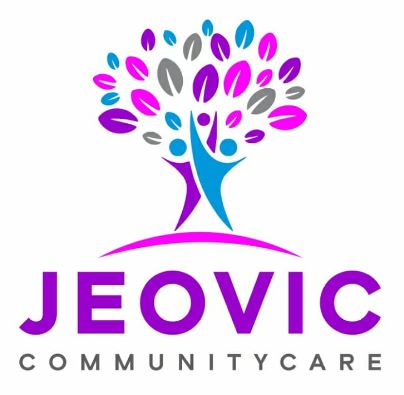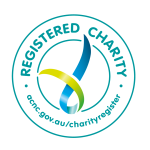The team at Jeovic Community services has put together this article containing useful information about access to the NDIS for CALD community members.
What is CALD support?
The National Disability Insurance Scheme (NDIS) provides reasonable and necessary funding to people with a permanent and significant disability to access the supports and services they need to live and enjoy their life. In a 2019 outline, the NDIS defined Culturally and Linguistically Diverse Communities (CALD) participants to refer to participants of the NDIS who were either not born in Australia, New Zealand, the United Kingdom, Ireland, the United States of America, Canada, or South Africa, and/or where the primary language spoken at home is not English. So, it can be inferred that people who fit those criteria are the culturally and linguistically diverse.
Supporting NDIS CALD participants therefore means supporting a participant who is from a non-English speaking background in a way that ensures that freedom, choice, and control as well as their cultural background is respected in the provision of NDIS support to the participant.
How do I access it/ask for CALD support?
Any participant who is from a non-English speaking background who has a funding package with the NDIS can access or ask for CALD support. There are a few ways to access CALD support as listed below
- From an NDIS provider who provides CALD supports
- Using a Translating and Interpreting Service to request for support from an NDIS provider if you require information to be translated
- Request culturally competent staff to provide support- this means staff with targeted language skills and cultural knowledge of your heritage
How do I know when someone needs CALD support?
Any participant from a Culturally and linguistic background will require CALD support. This is because they have a right to equitable service and equitable service means that the support, they are provided helps them to increase or manage their health better, they participate at a higher level in the education system no matter what that looks like for the individual. This also means they are supported for better participation in training and employment, social inclusion, and access to goods, services, facilities, and advocacy to safeguard their rights and help them participate in their community
Are disability services delivered in the same way for CALD people as the general population?
No
CALD support is the support that embraces cultural competence of the support workers and a service that is culturally appropriate for the individual. This means the following:
Cultural competence means equal access and non-discrimination in delivering of services. This requires:
- An awareness of values, beliefs and prejudices which impact the way we view others;
- Sensitivity and awareness of the diverse cultural beliefs and practices of others;
- Knowledge and understanding about a person’s specific culture and experiences; and
- Knowledge and skills of processes for working with persons with disabilities from different cultures, including cross-cultural communication.
This means the support must be typically designed and delivered to meet the needs, aspirations, and individual choices of the participant.
Who can provide it?
CALD support can be provided by any NDIS service provider who does the following:
Provide culturally diverse staff who are competent to work across cultures.
Provide staff with targeted language skills and cultural knowledge.
Provide staff who are competent in culturally responsive practices to the service provision in the CALD community.
They will also be committed to develop standards and resources that include culturally responsive practices in their service provision.
They should be able to provide interpreting services to all clients who require interpreting services and train their staff on the use of interpreters.
How do I become a CALD provider?
Developing a trust brokering strategy and consulting with a specific CALD community will go a long way in building trust with the community. Developing standards and resources that include culturally responsive practices in providing service. Being able to understand the specific needs of the individual client using accredited interpreters where required to ensure the choice and control of the individual is understood and followed in developing a care plan for the client.
Be prepared to undertake targeted communication and engagement with the CALD community.
Developing a cultural diversity strategy. This involves prioritising and planning for CALD disability service clients the same way as mainstream clients. The outcome of this equitable framework would be the same level of access for CALD and mainstream clients
Cultural competency approaches and training. Understanding the diversity of values and beliefs across cultures will allow organisations and service providers to respond more appropriately to the needs of individuals with disability and their families. Marketing to reach CALD clients should depict that the services provided is suitable to meet their needs and culturally appropriate in providing service to the CALD community.
Appropriate language provisions. Language support services for CALD people with disability are needed to ensure the effective communication of important information and delivery of quality and suitable services. Appropriate language can be provided through easily accessible, inexpensive, qualified translation services. The use of TIS (Telephone Interpreting Services), which include access to a large catalogue of languages and dialects and is available 24 hours a day 7days per week will also be a great way to engage CALD clients.
Cultural brokering. Cultural brokering is defined by Jezewski and Sotnik as “bridging, linking or mediating between groups of different cultural backgrounds” to reduce possibilities of conflict, misinterpretation or enhance knowledge exchange, to bring about change. Cultural brokerage helps to reduce inequality and improve access and outcomes for CALD people with disability. Cultural brokerage should be driven by the community giving the community an opportunity to be experts in their own lives.
Co-design a CALD service policy with CALD people, ensuring that services provided to CALD clients are culturally appropriate and relevant
What makes a good CALD provider/what support should a participant expect to be given?
A good CALD service provider is a provider that respects the choice of the participant and demonstrates that by ensuring that in care planning for the participant the participant can express their choice and control the type of service they require. This will ensure that the participant receives quality care. A participant should expect to be supported in a way that validates who they are as individual and a support that also validates their cultural heritage.
ACKNOWLEDGEMENTS:
- Barriers and exclusions: The support needs of newly arrived refugees with a disability – Refugee Council of Australia
- Settlement-Services-International1.pdf (dss.gov.au)
- Culturally and Linguistically Diverse report | NDIS
- NDIS CALD Profile: Greater Brisbane (communities.qld.gov.au)
- AMPARO-report-for-CALD-NDIS-hr-003.pdf: The NDIS and Culturally and Linguistically Diverse Communities: Aiming high for equitable access in Queensland
- NDIS-CALD-Report-FINAL-2017.pdf (anglicaresa.com.au)
Information from Jeovic Community Care services:
Email: info@jeovic.com.au
0422 416 1919/ 0411 350 800

